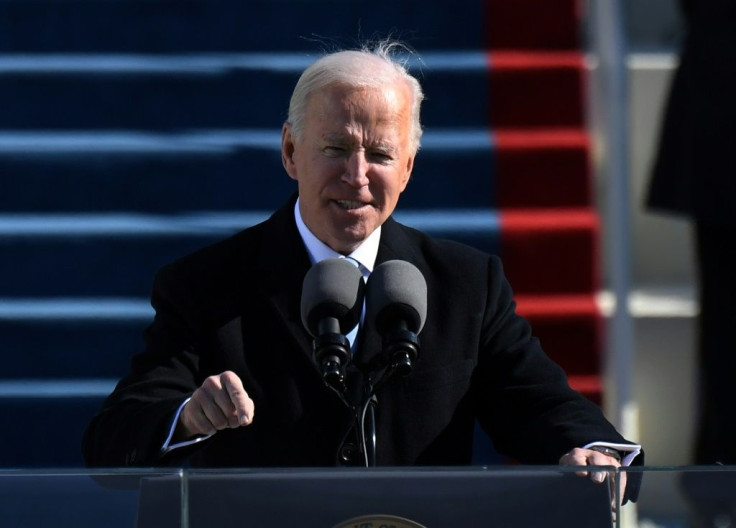Biden Officials Say Pfizer And Moderna Likely To Fall Short Of 220 Million Vaccine Goal
As vaccine companies rush to increase production, some officials are saying that even their redoubled efforts won’t be enough to meet the original goal of 220 million doses by April.
Two members of the Biden administration told The Washington Post that Pfizer and Moderna were more likely to achieve just under 200 million doses of COVID-19 vaccines by that date, though that has stopped the manufacturers from trying to still make their goal.
Pfizer and manufacturing partner BioNTech are still optimistic about meeting their promise, telling the Biden administration that they've almost halved the time needed to deliver their doses of the vaccine by doubling the capacity of vaccine-producing equipment and creating in-house sources of scarce raw materials.
Both Pfizer and Moderna have benefited from FDA allowances of “overflow,” as well, which allows them to fill each vial with more vaccine doses to balance their supply lines.
Despite these attempts, the government, however, remains skeptical.
“Many of these companies received significant federal investment to build their manufacturing capacity last year so that we would be able to rapidly deliver millions of vaccines as soon as they were authorized,” said Rep. Diana DeGette, D-Colo., chair of the House Energy and Commerce oversight subcommittee. “Two vaccines have been authorized and production is ramping up, but there is still insufficient supply to meet current demand.”

Joe Biden’s executive branch has been similarly conservative, declining to make new promises beyond its original goal of 100 million vaccinations in its first 100 days. It’s thus far been content to overperform, telling governors Tuesday that states’ allotment of doses would increase by one million per week.
Officials told The Washington Post that the private companies weren’t likely to achieve their more ambitious goal: both Pfizer and Moderna are well behind the production rate they’d need to achieve 220 million doses, with maximum expected production speed still falling short.
“As we work to meet these goals, we are continually learning and working closely with our partners and the federal government to identify ways to address bottlenecks and accelerate our production,” Moderna President Stephen Hoge said in a speech.
The Biden administration has taken a forgiving stance though, eschewing the public dressings-down and threats that often marked Donald Trump’s virus response.
An official told The Washinton Post that, while companies would be held to commitments, Biden wants government and businesses to have “collaborative enough relationships where they will share risks, as opposed to putting a gun to their head and saying, ‘You have to do X or Y and we don’t want to hear anything about it.’”
© Copyright IBTimes 2024. All rights reserved.




















